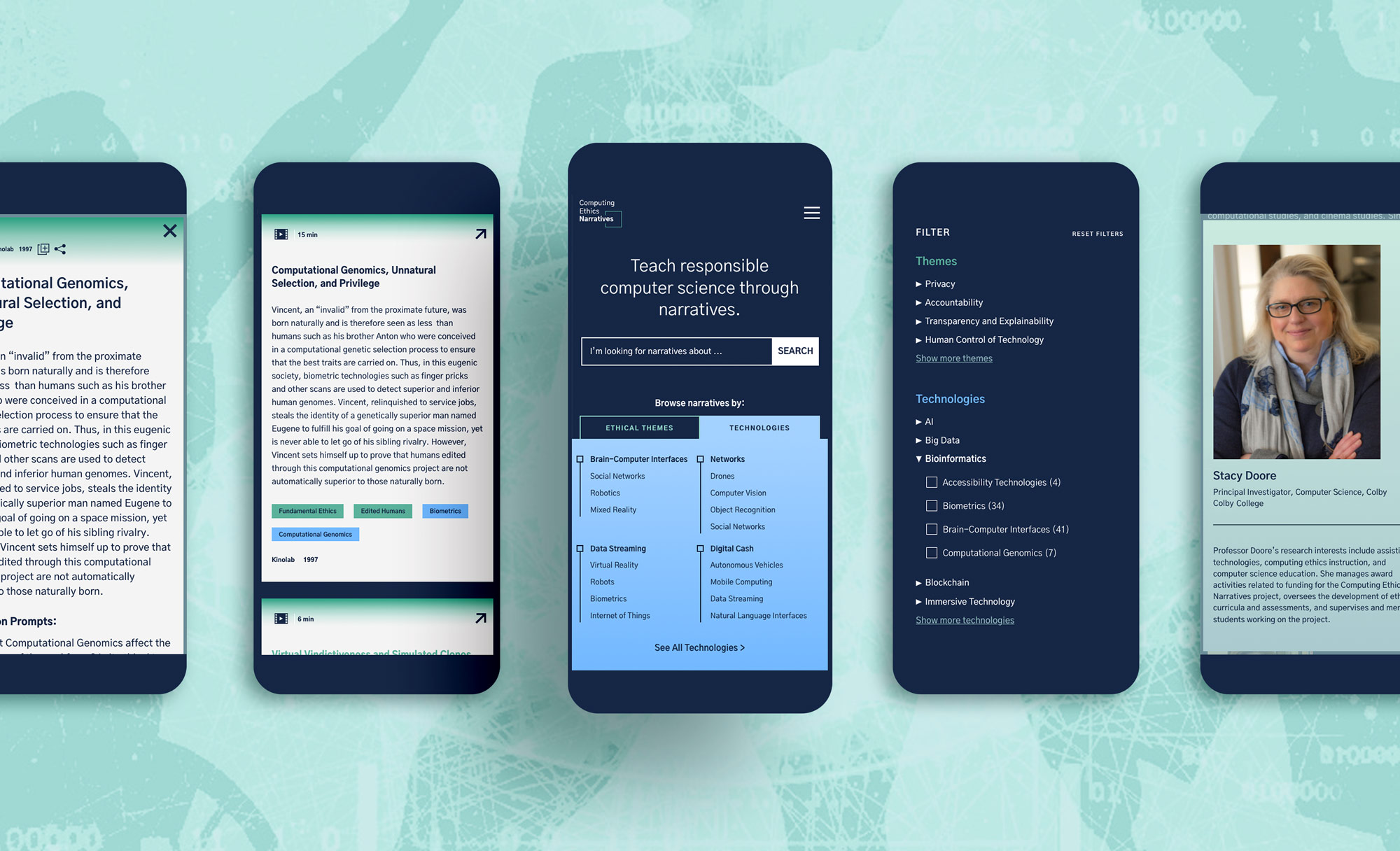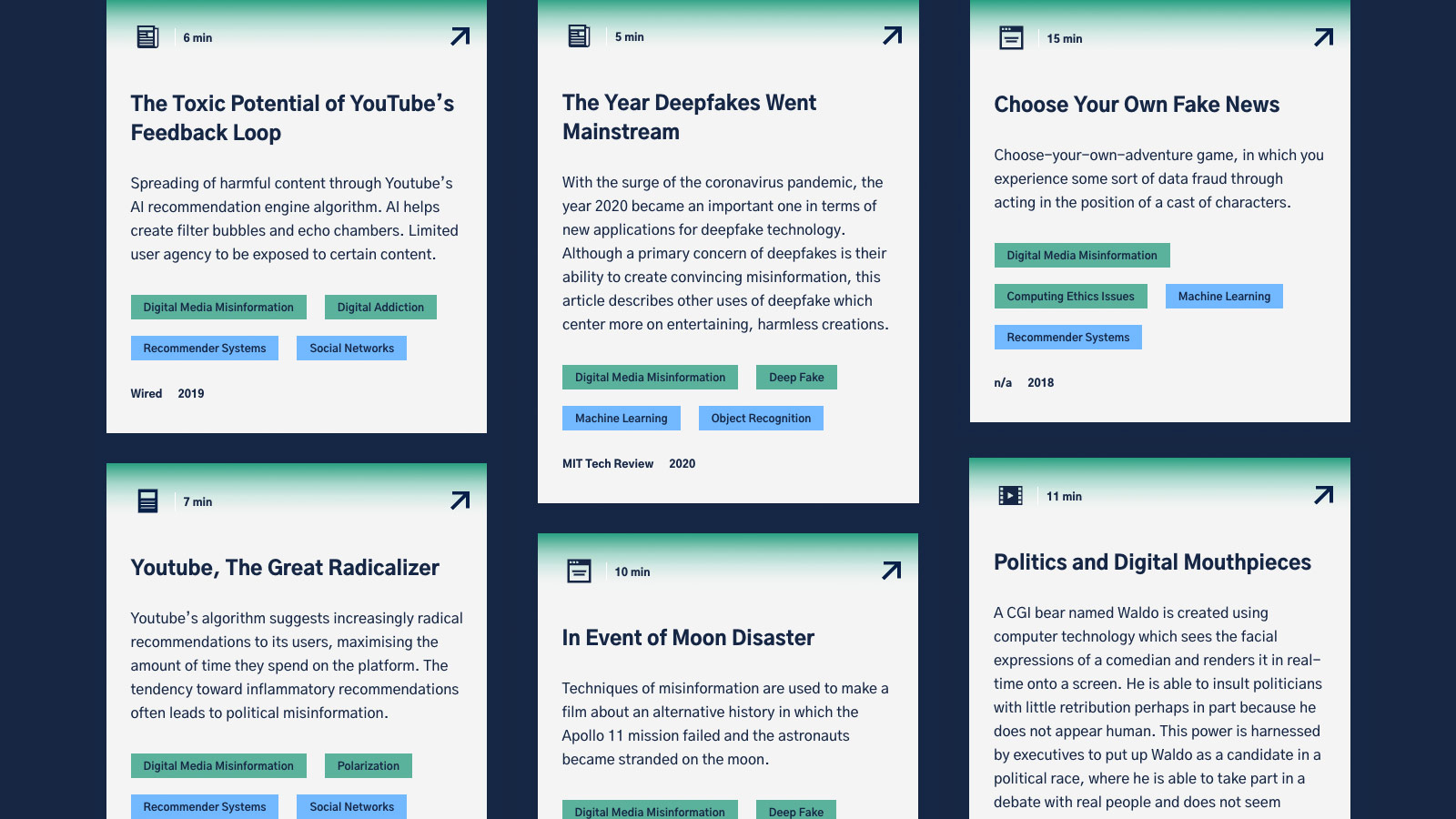
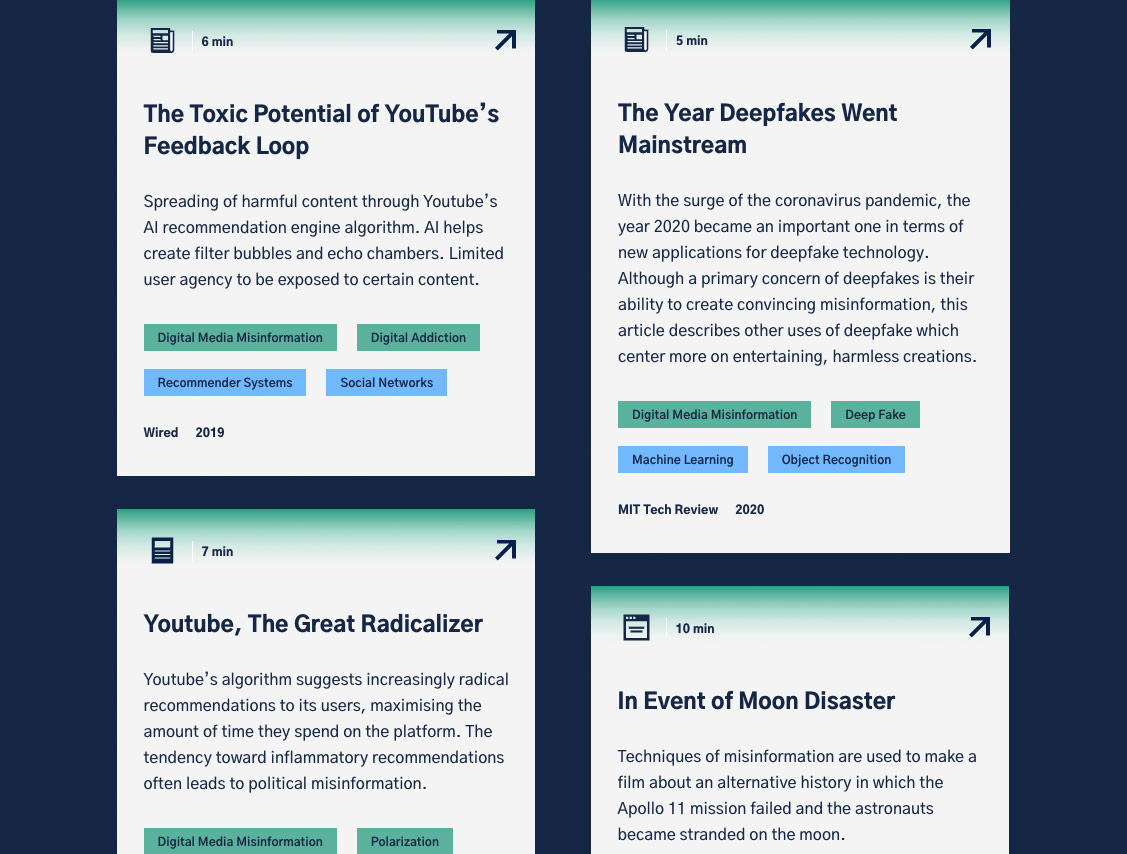
The explosive growth of the internet and related technologies over the past three decades has created an urgent need for deeper ethical examination of issues that have arisen alongside them, including data privacy, misinformation, bias, cybercrime, and censorship.
With funding from the Mozilla Foundation and other organizations committed to responsible computer science, a team of faculty members from Bowdoin and Colby Colleges launched an initiative to use narratives as tools to help students consider the societal and social consequences of their work.
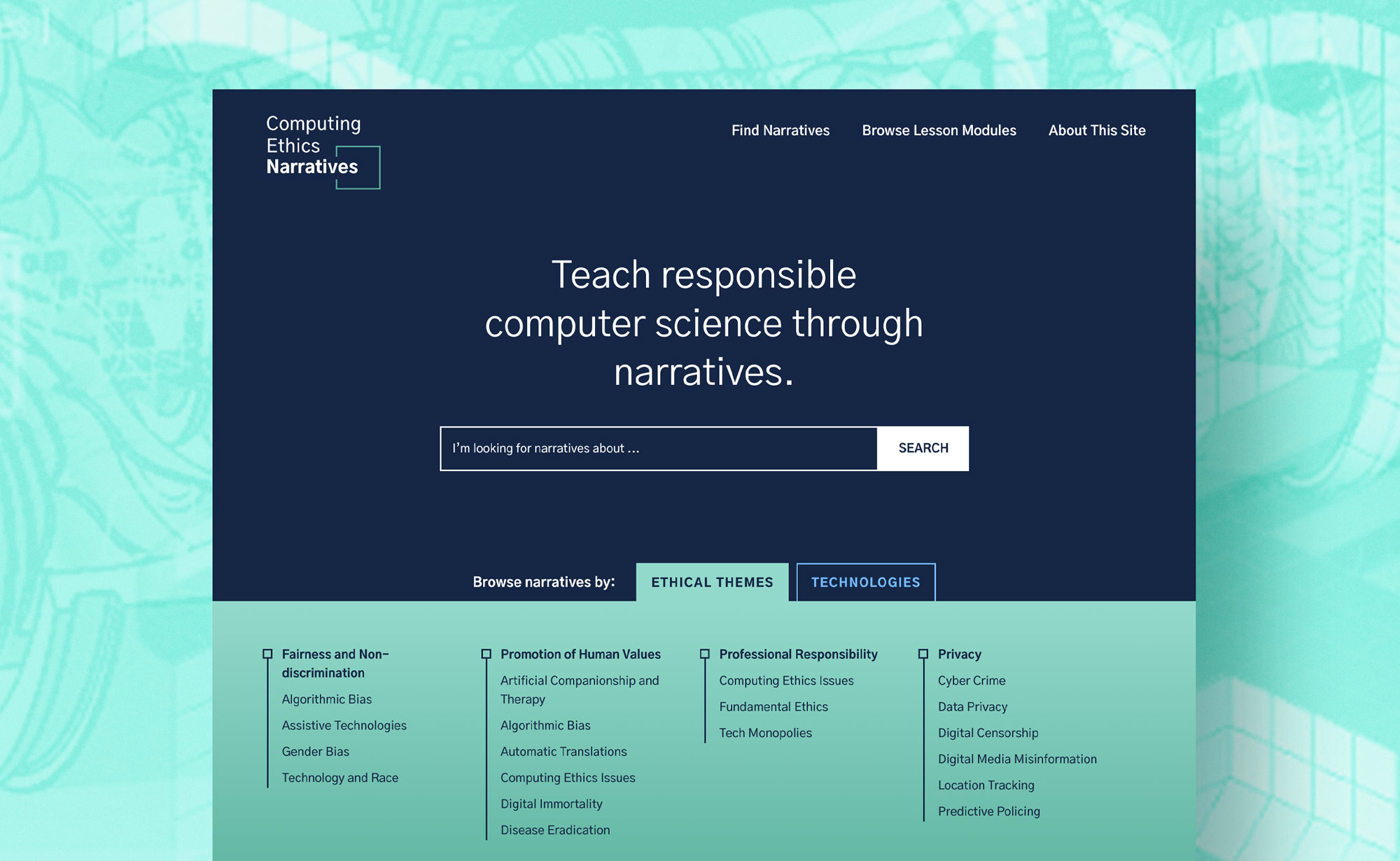

“Most programmers are not typically trained to ask questions like ‘Who stands to benefit from this technology’ and ‘How could this technology be exploited for harmful ends?’”
— Stacy Doore
Project lead along with Allison Cooper and Fernando Nascimento
We worked with the project team to design and develop a website that would become a cornerstone of the project, providing an interface to search the growing database of hundreds of narratives that help illustrate and imagine the ethical implications of technology.
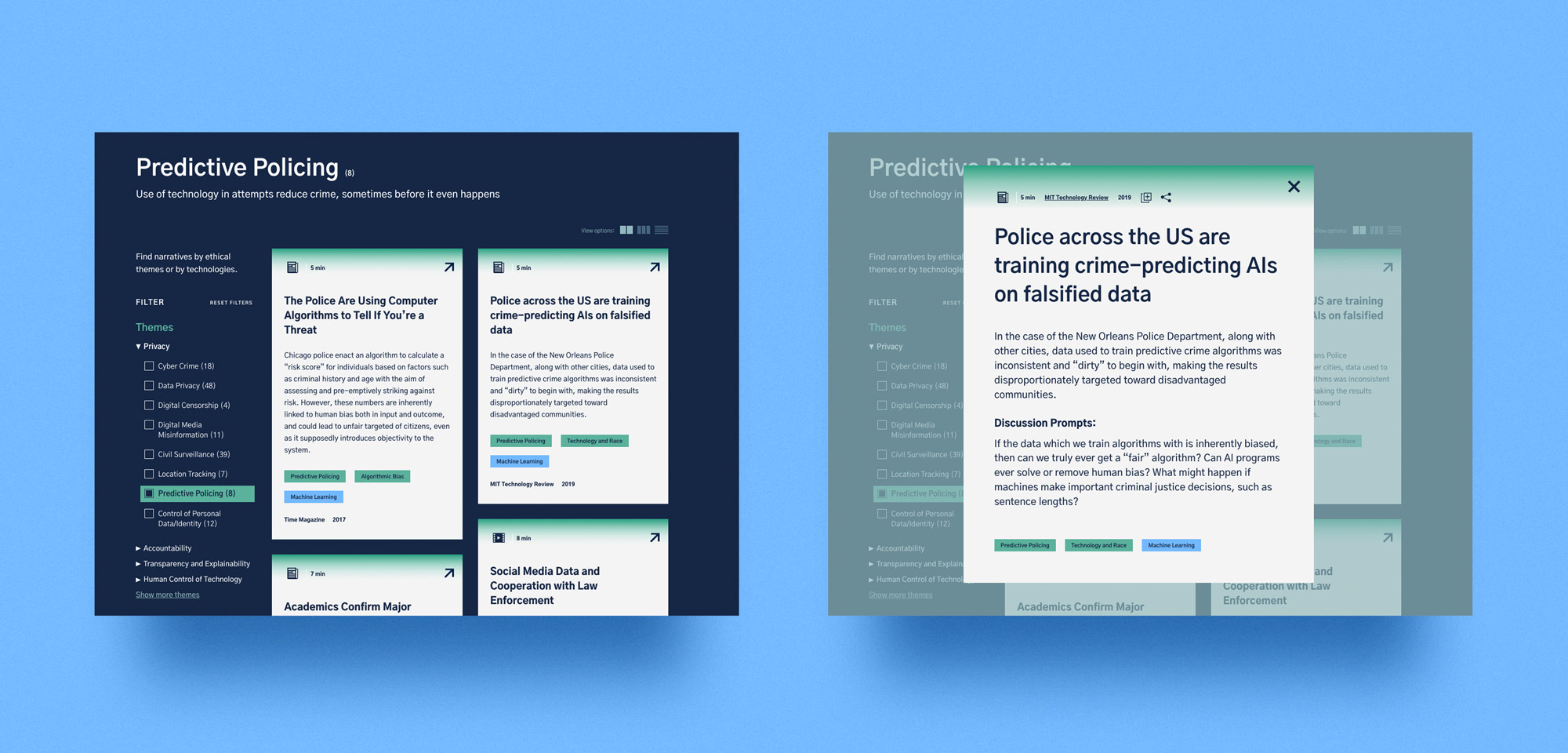
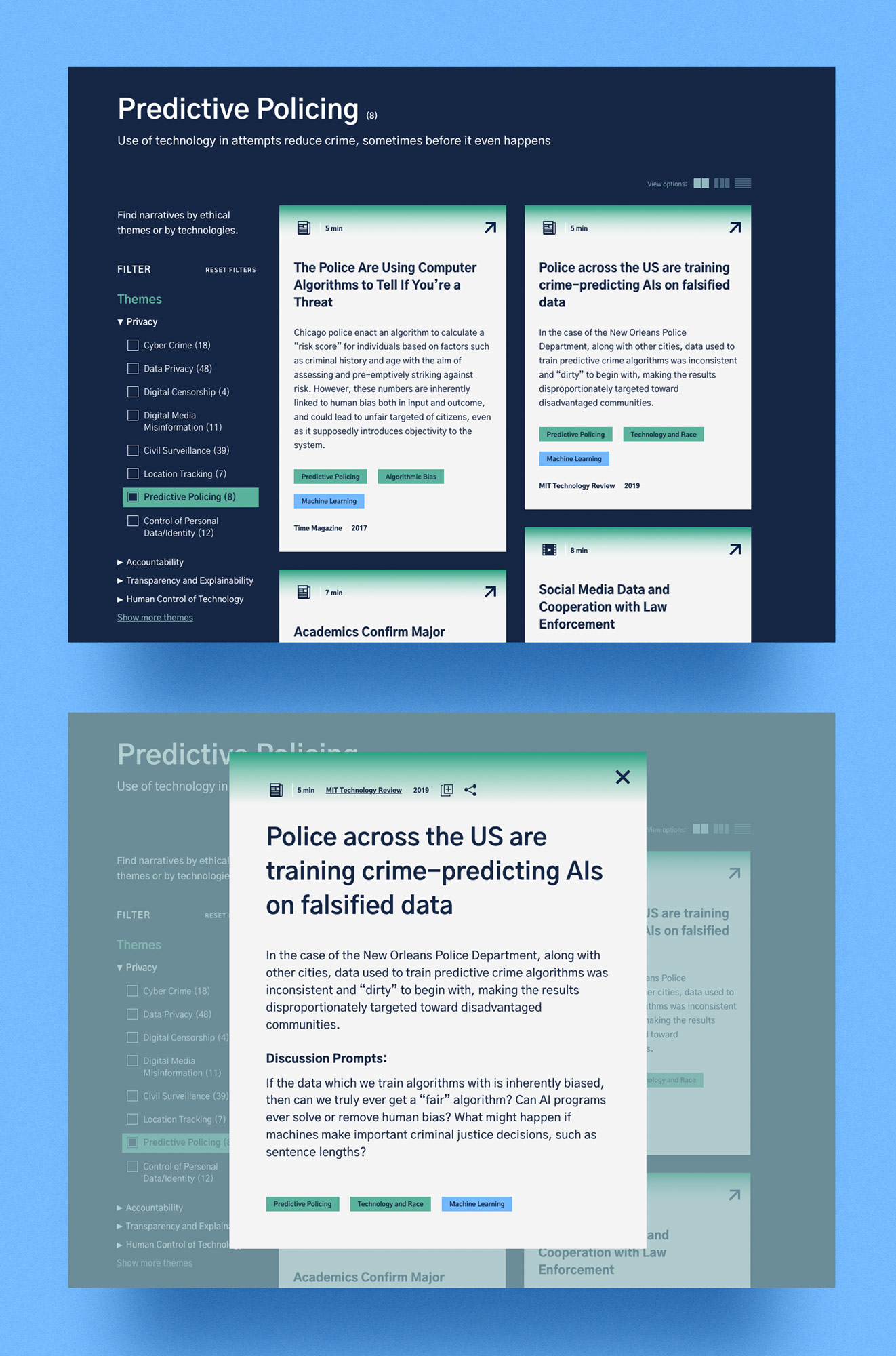
Our goal was to make the wide range of resources including film and TV clips, short stories, podcasts, and articles, easy to browse and collect into robust lesson plans. We designed a system of cards that display preview information about each narrative and include tags that highlight interconnections.
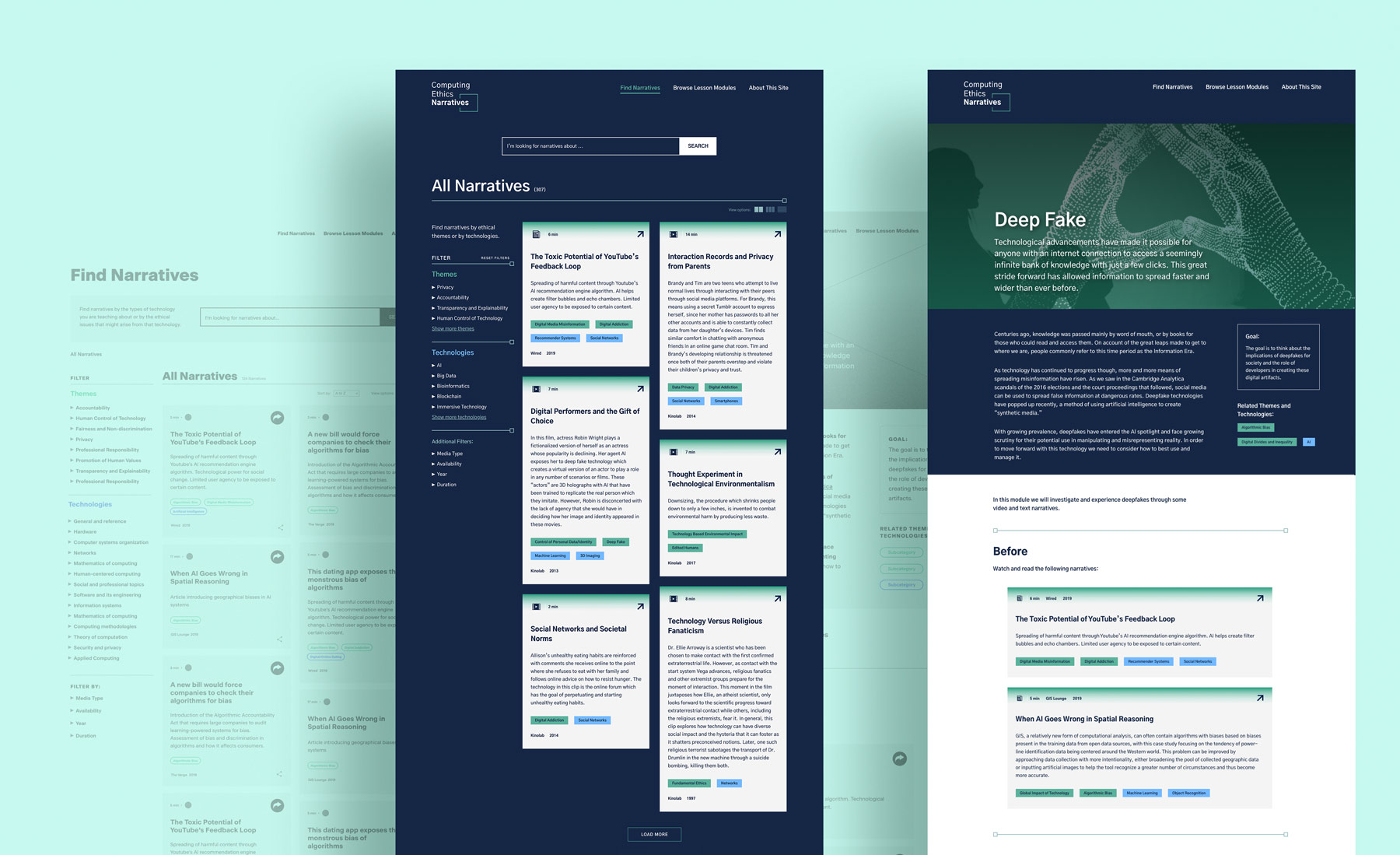

The website provides an organized and clear user experience that allows instructors to navigate easily to relevant subject matter to incorporate into their teaching while also creating avenues for exploration and discovery of less familiar topics. Ultimately the project helps students develop their ethical reasoning skills as they look toward careers in computer science as researchers, product developers, database managers, and software engineers.
